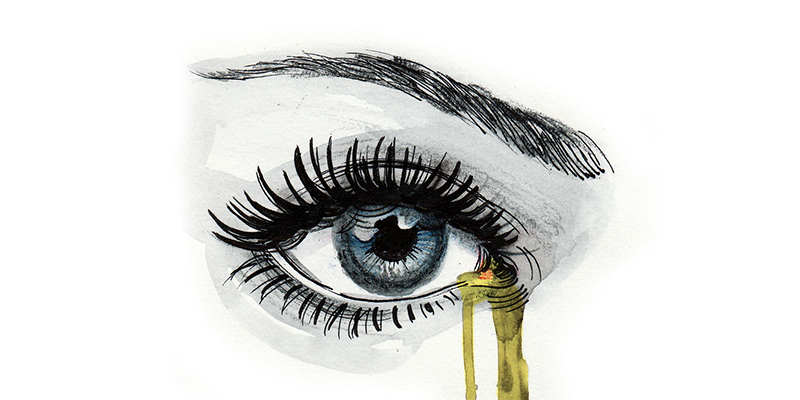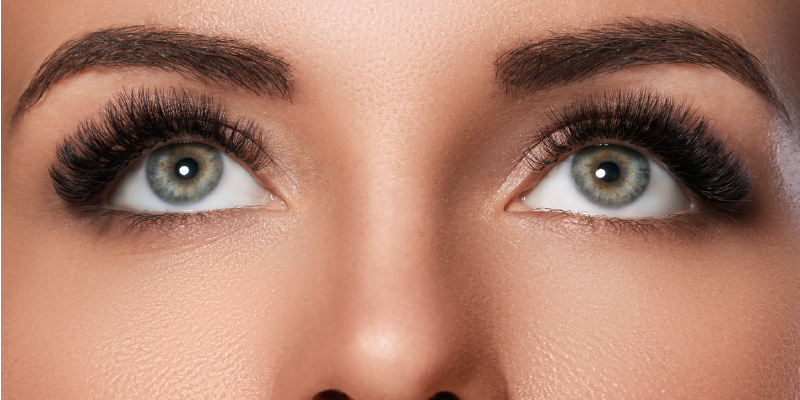The Centers for Disease Control and Prevention report that over 40 million American workers or 30 percent of the country’s workforce get less than six hours of sleep each night. For many people, receiving so little sleep has serious consequences.
Sleep is critical for good health — including that of your eyes. Issues due to lack of sleep can extend to more serious complications than dark circles or puffiness around your eyes, even temporary loss of vision.
This article will review some of the more important issues that you should be aware of about the impact of insufficient sleep on your eyes.
The Short Term Effects of Sleep Deprivation on Eyes

Adequate sleep is important to maintain overall eye health. Sleep deprivation can immediately cause eye dryness and spasms in the eye muscles (blepharospasms). Floppy Eye Syndrome results in a person’s eyes opening while asleep and can trigger eye irritation or discharge.
A person might also experience double vision or difficulty focusing. These symptoms can quickly become apparent after one night of sleep deprivation, which includes anything less than five hours of sleep.
When people don’t sleep enough, they may also experience a significant decline in their physical appearance due to the presence of dark, under eye circles. These physical signs can be distressing if you have obligations the next day that requires you to be in public.
Long Term Effects of Sleep Deprivation on the Eyes

While there are several noticeable side effects that can occur due to short-term sleep deprivation, there are very serious eye impairments that can occur due to substantial sleep deprivation over a longer period of time. Persistent eye strain may damage blood vessels and dry eye may result in inflammation. A number of people experience insomnia due to sleep apnea, which refers to when the soft palate obstructs the throat while a person is asleep and reduces oxygenation. One study determined that sleep apnea is linked to glaucoma. One potential complication for those with a long history of sleep apnea is ischemic optic neuropathy, which involves interruption of the blood supply to your optic nerve.
How To Avoid the Damaging Effects of Sleep Deprivation

It is important to understand what amount of sleep is necessary for you to avoid the symptoms of sleep deprivation fatigue. The amount of sleep needed is a personal factor that varies greatly between people. Most adults, however, should make sure to get seven to nine hours of sleep each night. For people who experience difficulty falling or staying asleep, there are other crucial steps that need to be followed.
For example, you should turn off any electronic devices an hour before bed. Also avoid consuming caffeine shortly before sleep, reduce lights to help your body begin to relax, sleep with a white noise generator, keep your room cool, block out any distracting lights, and avoid eating within three hours before going to bed.
If you experience significant trouble falling asleep, it is often a wise idea to consult with a knowledgeable medical professional who can determine whether you have any condition that might be causing insomnia.
Distinguishing Signs of Sleep Deprivation
There are several signs that indicate a person is suffering from sleep deprivation. These symptoms include the following:
- Constantly being hungry is often a sign that brain is not receiving an adequate amount of energy from sleep.
- People who are fatigued frequently make more impulsive decisions. The reason for this is that sleep deprivation slows down the thought process and creates obstacles in cognitive processing.
- Decreased motor skill functioning, such as delayed reaction times, can be a sign of sleep deprivation.
- Failure to sleep properly can create health problems because your body’s ability to combat infections is decreased.
The Benefits Available from the Use of Cliradex

Because many adults experience sleep deprivation, you should understand how to reduce symptoms. Sleep deprivation leaves your immune system vulnerable to irritants, which is can lead to further negative effects. Many people have found that the foams and wipes from Cliradex help to reduce the symptoms of eye irritation. Feel free to look at some of the products manufactured by Cliradex and read customer reviews to gain an understanding of how these all natural, effective products can reduce eye irritation due to sleep deprivation.




